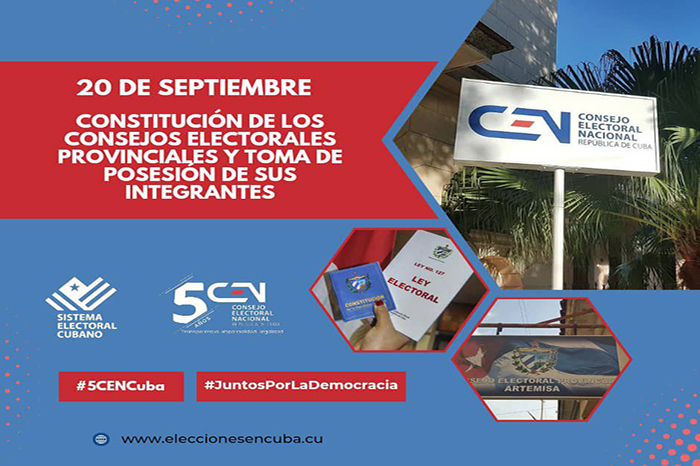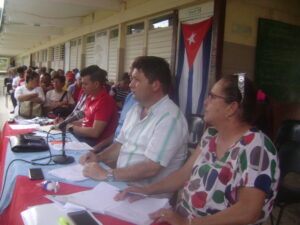Next Friday, 20 September, the provincial electoral councils will be constituted and their members will be sworn in throughout the country, a milestone in the strengthening of the principles of socialist democracy.
Speaking to the Cuban News Agency, Arián Ramos Gutiérrez, director of Institutional Communication and International Relations of the National Electoral Council (CEN), explained that the Council of State, at the proposal of the president of the CEN, elects the highest representatives of the structure in the territories by free, equal, direct and secret ballot, as established in Law 127, the Electoral Law.
She specified that the provincial electoral councils can be made up of up to 17 members, of which up to three are professionals, with the prior approval of the CEN.
In this way, the rest of the members (vice-president, secretaries and members) of the Provincial Electoral Councils are appointed by agreement of the higher body and these will take office on the aforementioned date before a representative of the same, he added.
He also went into the conformation of these structures at the municipal level, whose presidents are elected by the free, equal, direct and secret vote of the municipal assemblies of People’s Power, and the rest of their members are appointed by the Provincial Electoral Council, before which they will be sworn in next October.
Ramos Gutiérrez pointed out that in accordance with article 214 of the Constitution of the Republic, those who are nominated or occupy popularly elected posts such as district delegates and deputies to the National Assembly of People’s Power (ANPP) cannot be members of the electoral bodies.
The CEN is the State body in charge of organising, directing and supervising elections, popular consultations, plebiscites and referendums that are called in the country.
According to this constitutional mandate, it has functional independence with respect to any other body and is accountable to the ANPP for the fulfilment of its functions.




